Cancer Community Nippising
Prostate Cancer
Summary
Cancer Community Nipissing is meant to help you locate local resources for prostate cancer screening, treatment and local resources you may need during a cancer journey. We have provided some very basic information to help you to understand and find the resources in our region. For more comprehensive prostate cancer information, please go to one of the online resources recommended.
If you are aware of other local resources that have not been included here please let us know. We want your updates!
Prostate Cancer: Why do I need to know about this?
About 1 in 8 men will get prostate cancer in their lifetime. It's also the second-leading cause of cancer death after lung cancer. Prostate cancers can be found at any age, but the risk increases as you get older. Most prostate cancers are found in men over the age of 65. If you have one or more close relatives who have had prostate cancer you have an increased risk of getting it yourself.
Most men have no symptoms until the late stages of prostate cancer. That is why it's so important to get screened even when you feel well.
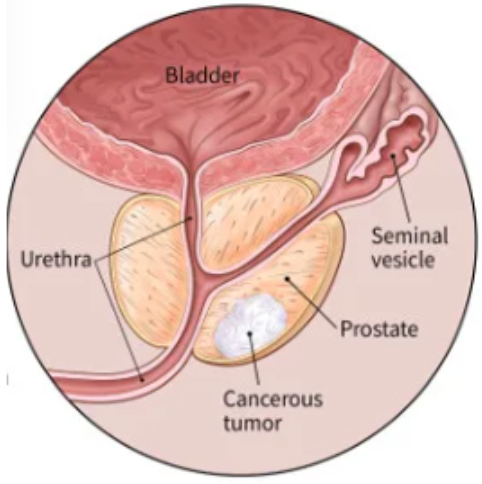
Prostate Cancer Screening
How can I get prostate cancer screening?
Prostate cancer screening can be done by your Family Doctor, Nurse Practitioner or Urologist. If you don’t have access to primary care, a walk-in clinic, while not ideal, would certainly be capable of initiating this screening. If this is not available, phone your local health unit to see what they suggest.
You should get screened if you are a man between the ages of 50 and 70. If you have had a brother or father with prostate cancer, screening is recommended to start 10 years before they were diagnosed. If all is well, screening would be repeated in 2-4 year intervals.
Screening in Englehart/ New Liskeard
 Learn more at timiskaminghu.com
Learn more at timiskaminghu.comThere are many known risk factors for cancer. For example, smoking is estimated to be responsible for 30% of all cancer deaths and one third of cancers can be linked to diet, obesity and lack of exercise. Incidence of cancer can be reduced through healthy lifestyle choices. Learn more about cancer, how to reduce the risk, and take part in cancer screening programs.
Screening in North Bay
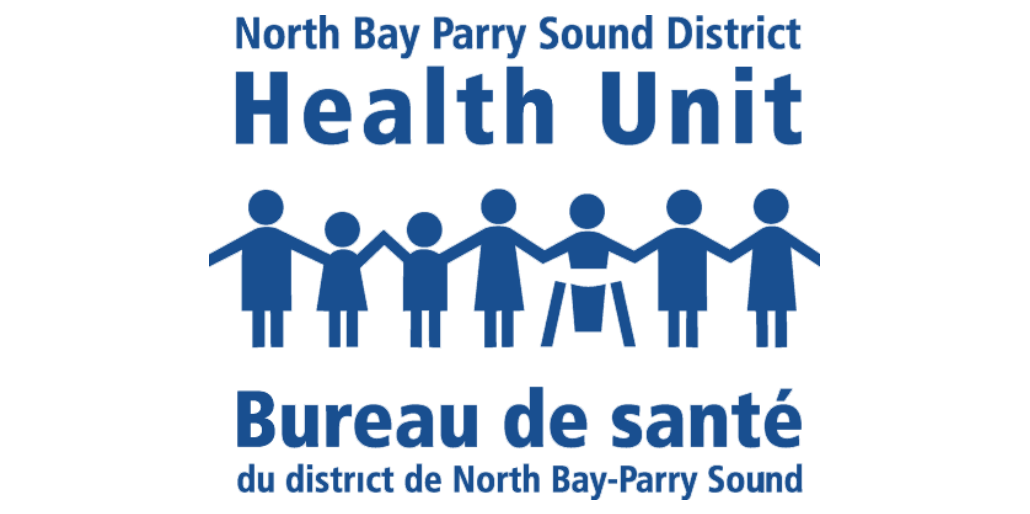 Learn More at myhealthunit.ca
Learn More at myhealthunit.caScreening is available in North Bay through the North Bay Parry Sound Health Unit.
What is Prostrate Cancer Screening?
Prostate Cancer screening can consist of:
- a rectal exam to check the prostate and/or
- a blood test to check the PSA (see below for explanation)
Each test has its pros and cons so when possible it is usually recommended to get both
Digital rectal exam (DRE)
 Learn more at timiskaminghu.com
Learn more at timiskaminghu.comAvailability: Local
This is the most common testing done to identify risk of prostate cancer and can be completed by your Family Doctor, Nurse Practitioner, or Urologist. A digital rectal exam (DRE) is a physical exam where the doctor uses a gloved, lubricated finger to check the prostate gland and determine if there are any lumps or bumps that might indicate cancer.
PSA blood tests
 Learn More at myhealthunit.ca
Learn More at myhealthunit.caAvailability: Local
PSA (prostate specific antigen) is a hormone in the blood that the prostate makes. There is no one number that absolutely indicates prostate cancer. So, we look for high numbers or a jump in your numbers between screening.
- Low PSA result: then there is a low risk that there is prostate cancer. Your primary caregiver will decide if you just continue to do screening in which case you may repeat the test in a couple of years.
- High PSA result: then it could indicate an infection, a prostate cancer or an activity that impacts the prostate. This can be activities like snowmobiling, riding on your lawn tractor or biking where there is impact or pressure on the prostate. The PSA may be high for a short time afterwards. Based on the level of PSA your primary caregiver will decide what the next step is. This may be simply to repeat the blood test again or to arrange for more in depth testing or referral to a urologist.
Further Testing
Further testing is generally through a urologist. A urologist is a doctor that deals with diagnosis and surgeries for prostate, bladder and kidney problems. They are accessed through a referral from your primary care provider.
Urology for the Nipissing region is available in North Bay. The offices are in the community and surgeries and special procedures are done at
North Bay Regional Health Centre.
Prostate Biopsy
 Learn more at nbrhc.on.ca
Learn more at nbrhc.on.caAvailaibility: Local - North Bay Regional Health Centre
A biopsy involves taking small samples of prostate tissue to check for cancer. It’s typically done if tests like the PSA or MRI suggest there is risk. Local freezing is used and the procedure is completed while the patient is awake. A prostate biopsy does carry a small risk of infection and for this reason typically antibiotics are provided. Patients will be asked to reduce activity level for a few days following biopsy. If there is any evidence of infection (fever / chills / shakes) or significant bleeding then a person should seek medical attention immediately.
CT scan / Bone scan
 Learn more at nbrhc.on.ca
Learn more at nbrhc.on.caAvailaibility: Local - North Bay Regional Health Centre
These scans check if cancer has spread outside the prostate. They look at the soft tissues and bones. Both are imaging tests. CT scan and Bone scan are typically only ordered following the diagnosis of prostate cancer after a biopsy or in situations where the PSA blood test is so high that it is extremely unlikely that cancer is not present.
Cystoscopy
 Learn more at nbrhc.on.ca
Learn more at nbrhc.on.caAvailaibility: Local - North Bay Regional Health Centre
This test may not always be required in the assessment of prostate cancer.
Cystoscopy is done by a urologist and involves moving a camera through the urethra (pee pipe) to look at the urethra, the inside of the prostate, and the bladder. This test can be helpful in assessing if the cancer is affecting the bladder or urethra. This test can also sometimes provide useful information as to why a PSA number could be high in the absence of cancer.
Prostate Magnetic Resonance Imaging (MRI)
 Learn more at hsnsudbury.ca
Learn more at hsnsudbury.caAvailaibility: Remote - Health Sciences North (Sudbury or down south currently)
An MRI provides detailed images of the prostate and can detect suspicious areas. It’s usually done if the PSA test or DRE show something abnormal. An MRI can help avoid unnecessary biopsies by identifying areas that need closer inspection. Your urologist will recommend whether or not this would be of value to you.
PSMA- PET scan
 Learn more at hsnsudbury.ca
Learn more at hsnsudbury.caAvailaibility: Remote - Health Sciences North (Sudbury or down south currently)
This is an advanced scan that uses a radioactive substance to detect prostate cells throughout the body. It helps doctors see if cancer has spread beyond the prostate. Your urologist will recommend whether or not this test would be of value to you.
Prostate Cancer Care
If you are diagnosed with prostate cancer, your urologist will talk to you about the type of care that you may need. Your initial treatment plan will be determined by shared decision making between you and your urologist. Some of the factors are: stage of the cancer, age, health and personal goals. Different people are comfortable with different treatment paths. Your treatment path may include some of the following possibilities:
Active Surveillance
Availability: Local
For low-grade prostate cancers, immediate treatment might not be needed. Regular monitoring by your urologist with blood tests, exams, and sometimes repeating the MRIs and biopsies is essential to watch for changes.
Surgical Care
Availability: Local & Remote
If cancer is confined to the prostate but is more aggressive, surgery to remove the prostate may be recommended. There are two main methods: open surgery and robotic surgery. Both have risks including urinary incontinence (leaking) and erectile dysfunction. These may be temporary or permanent and have different treatment options.
Open surgery: availability local - North Bay Regional Health Centre
Robotic: availability remote - Ottawa or Toronto
Radiation Therapy
 Learn more at hsnsudbury.ca
Learn more at hsnsudbury.caAvailability: Local - Health Sciences North Cancer Centre in Sudbury
Radiation therapy can treat prostate cancer by targeting cancer cells with high-energy rays. It can be done externally or by placing radioactive materials directly near the cancer (brachytherapy). Radiation therapy side effects may include: urinary incontinence (leaking), erectile dysfunction, inflammation of the rectum or bladder and strictures (narrowing of the pee pipe). This requires a referral from your urologist to a radiation oncologist.
Hormonal Therapy / Chemotherapy
Availability: Local & Remote
Since prostate cancer often relies on male hormones (androgens) to grow, hormone blocking therapy can slow its progression. In advanced cases, chemotherapy and other medications may be used. Hormone therapy alone doesn’t cure prostate cancer but slowing it down may be all that is needed. Cancers can become resistant to hormone therapy over time so monitoring is done to track the effectiveness of your treatment. These treatments are available locally in our district and are prescribed by your urologist.
Continued research has continued to produce new specialized chemotherapy agents that may work better in specific situations. Your urologist may refer you to a Medical Oncologist if they feel you may benefit from these. These medications are often given in advanced (metastatic) prostate cancer. Medical Oncologists are available at Health Sciences North Cancer Centre in Sudbury or one of the major centres.
Common Side Effects of Treatment and Resources
Leakage
Some men experience urinary incontinence after prostate cancer treatment. Options to manage this include pelvic floor exercises, pads, or in severe cases, surgery.
Pelvic Floor Physiotherapy
Availability: North Bay, New Liskeard
Pelvic floor physiotherapy (PFP) can be very helpful with urinary leakage. This is where a trained pelvic floor physiotherapist helps to recruit and train the pelvic floor musculature to improve urinary control. There is very little risk to PFP but the success requires practice and work!.
North Bay
- Symmetrics: Ali Provost
- Baas Physiotherapy: Kaili Baas
New Liskeard
- Pelvic Health Solutions: Alyssa Macdonald
Online video resources can also be very helpful:
- Michelle Kenway (YouTube)
Pads
For some men, the use of disposable pads is the simplest solution to leakage. Disposable pads are available at grocery stores, pharmacies and walmart. They can also be ordered online. Sometimes irritation can occur with ongoing use of pads and a barrier cream can assist with this.
A few of the options are:
- TENA mens
- Depend Shields for men
- Attends Guards for men
Cost can be a significant issue. Typically purchasing in bulk can provide cost savings.
Coverage:
- ODSP - if you are on ODSP, ask your ODSP caseworker for a Mandatory Special Necessities benefit request form. Have your doctor complete the form and return to your caseworker for approval.
- Private plans: will also provide coverage for incontinence products. Contact your insurance provider about what coverage they may have.
Reusable Underwear / Pads
For other men, the option of protective underwear that is re-usable is another option. Again, there are many different products that exist on the market for this and often requires a trial-and-error approach to see which works for a given man.
A few options that exist are:
- Paceycuff.com
- Wearevercanada.ca
- Amazon.ca – men’s washable incontinence briefs.
Penile Clamps
For some men the use of a reusable penile clamp can provide the ability to resume normal activity with a reduction / elimination of pads and no need for surgical intervention. Some men do extremely well with penile clamps while others can experience some irritation / discomfort.
Some options that exist are:
- Dribblestop (our experience is that more men have success with dribblestop compared to others)
- Weisner clamp
- Paceycuff
Surgical Options
For severe incontinence surgical options do exist. These can include the surgical placement of a urethral sling or the placement of an artificial urinary sphincter (AUS).
These options are now available locally in our district.
Erectile Dysfunction
A loss of erectile function is another common issue encountered by men following treatment for prostate cancer. While this can be a difficult topic to discuss for some men, it is important to know that there are options that exist for men who are motivated to resume sexual activity. Men are encouraged to speak with their Urologist to determine the best possible options for them. These can possibly include:
Oral Medications
Availability: Local
These are the preferred choice by both the doctor and patients for ease of use.
Available through all pharmacies by prescription.
Intracavernosal Injections
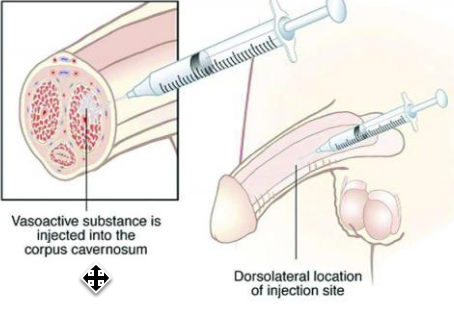
Availability: Local (Robinson’s Pharmasave / Algonquin Pharmasave )
Injections can be tried at any time but are typically only used after trying oral medications.
Surgical Penile Prosthesis
Availability: Remote
This option is typically only used after trying pills and injections as this requires a surgery. It involves the surgical placement of inflatable tubes into the penis to obtain an erection
Not available locally. This requires a referral to a surgeon in one of the major centres.
Mental/Emotional Challenges
It is normal to experience a wide range of emotions if you or a loved one has been diagnosed with prostate cancer. Sometimes these emotions fade over time, sometimes they do not. For some men it can be extremely helpful to have some resources to aid with the mental and emotional strain of a cancer diagnosis.
Mental and emotional wellbeing can take many forms for men with a diagnosis of prostate cancer. This can include talking with loved ones, talking with your health care providers, speaking to dedicated mental health professionals, or using self help resources that exist.
Your Average Joe: Peer Community Support
Contact Urology NorthAvailability: Local
This is not a formal organization but a small group of men who have gone through prostate cancer have expressed interest in being patient contacts for people newly diagnosed with prostate cancer.
This sort of support can make a big difference.
If you would wish to be put in contact with this group, the Urology North office can help you with this.
Psychologists
Availability: Local
There are many psychologists in town that provide counseling. This is not an OHIP funded service. It is self pay or by private insurance.
Online Resources
There are many resources that can be found. Here are some reliable ones to start with:
Prostate Cancer Supportive Care Program (PCSCP)
 Learn More at pcscprogram.ca
Learn More at pcscprogram.caThis is a comprehensive survivorship program developed at the Vancouver Prostate centre for prostate Cancer patients, their partners and family from time of initial diagnosis onwards.
PROCURE
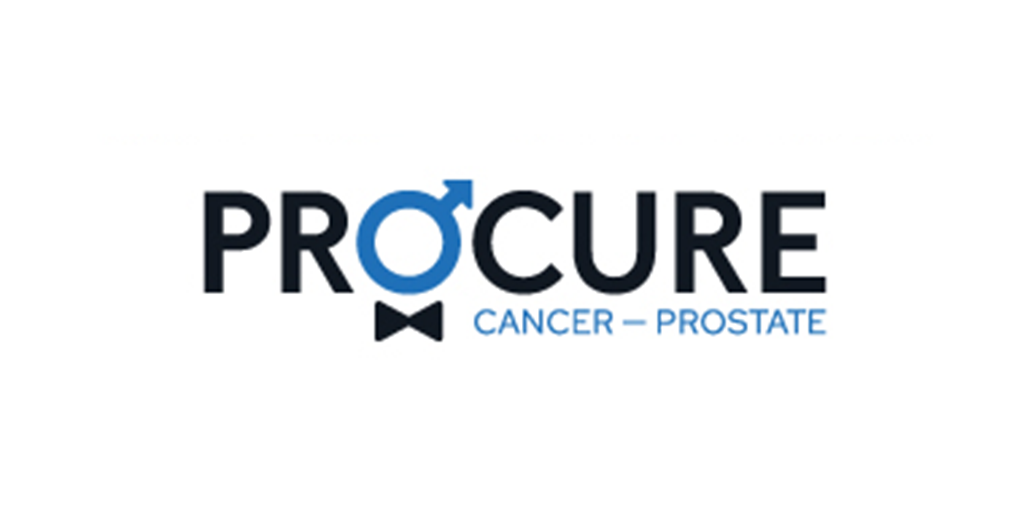 Learn More at procure.ca
Learn More at procure.caThis is a Canadian non-profit entity dedicated to the fight against prostate cancer through resources, research, awareness, information, and support services.
They include a toll free support line as well for men: 1-855-899-2873
The Canadian Urological Association
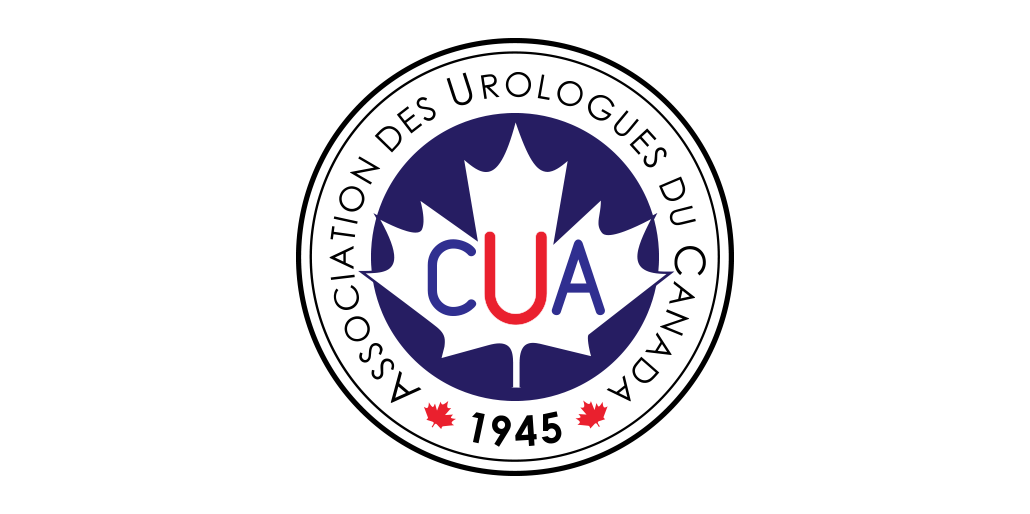 Learn More at cua.org
Learn More at cua.orgThe Canadian Urological Association is a website that has resources for both patients and doctors. Patient resources include information videos, pamphlets and guidelines.
There are many industry-sponsored programs and resources available to men with a diagnosis of prostate cancer. Your Urologist will be able to provide you with directions for enrollment in these programs.


